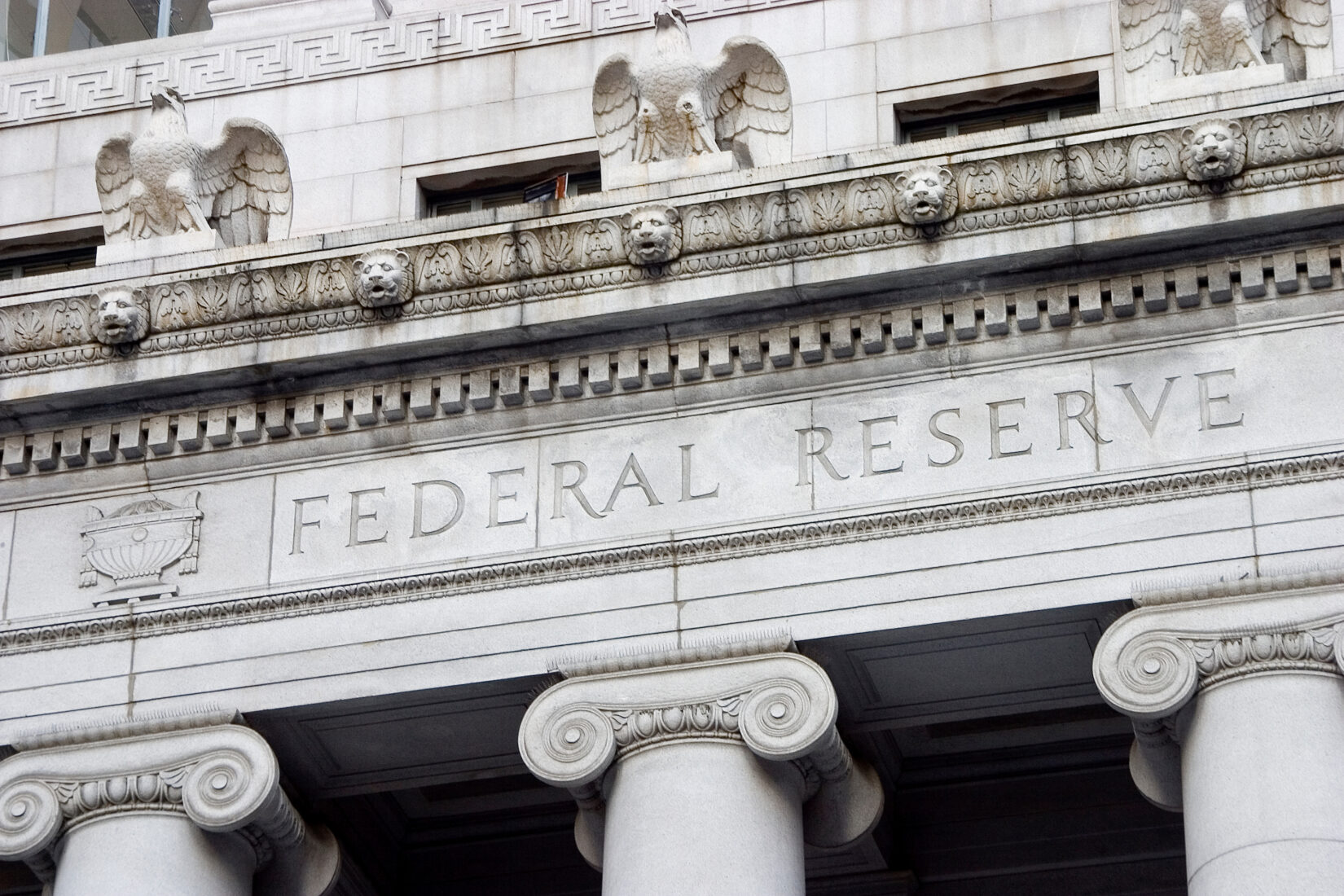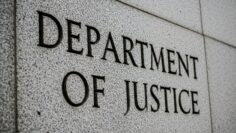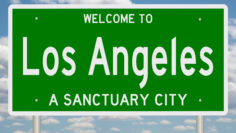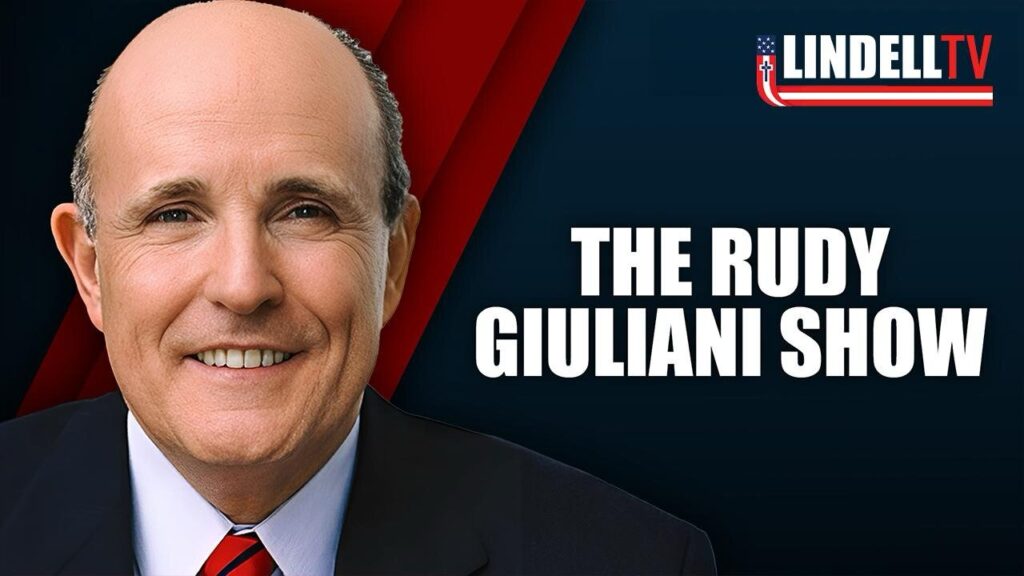
President Trump’s showdown with Fed governor heats up
President Trump’s move to fire Federal Reserve Governor Lisa Cook likely sets up a meaningful legal battle that will test the boundaries of executive authority
Opinion-Analysis by Summer Lane | September 1, 2025
Last week, President Donald Trump moved to fire Federal Reserve Governor Lisa Cook from her position, citing authority in Article II of the U.S. Constitution and the Federal Reserve Act of 1913.
Under the act, a Federal Reserve governor must be removed for a justifiable reason, or cause, and President Trump noted this in a letter delivered to Cook, alleging that he had found “sufficient cause to remove you from your position.”
The president cited a criminal referral made to Attorney General Pam Bondi from the Director of the Federal Housing Finance Agency, William J. Pulte. “…there is sufficient reason to believe you may have made false statements on one or more mortgage agreements,” Trump’s letter noted. “For example, as detailed in the Criminal Referral, you signed one document attesting that a property in Michigan would be your primary residence for the next year. Two weeks later, you signed another document for a property in Georgia stating that it would be your primary residence for the next year.”
President Trump stated that it was “inconceivable” that Cook was unaware of her previous commitment in Michigan while signing for residency in Georgia.
For her part, Cook is refusing to resign. “I learned from the media that FHFA Director William Pulte posted on social media that he was making a criminal referral based on a mortgage application from four years ago, before I joined the Federal Reserve,” she said in a statement responding to the allegations, per NBC.
“I have no intention of being bullied to step down from my position because of some questions raised in a tweet,” she added.
Whether Cook committed fraud or not is unproven, but her reputation has certainly taken a few hits since President Trump’s letter was published online, and the president is taking a bold risk by pursuing her firing.
A Federal Reserve governor has never been fired by a U.S. president, but that doesn’t mean the boundaries of executive authority have never been tested.
In 1935, President Franklin D. Roosevelt tried to terminate Federal Trade Commissioner William E. Humphrey.
The case went to the U.S. Supreme Court, which determined that the president could not remove officials from independent agencies without “cause.”
The aforementioned “cause” is essentially the crux upon which President Trump’s modern-day argument hinges.
Cook says she’ll fight it out in court as more issues arise
Last week, Cook lawyered up as she began a legal battle aimed at retaining her position at the Federal Reserve, tapping attorney Abbe Lowell for representation.
On Thursday, Cook filed a lawsuit against the Trump administration, seeking an injunction to block the president’s firing. Per Deseret, Cook argued that the president’s decision to fire her was “illegal and unprecedented,” and described the allegations against her as “unsubstantiated.”
The bottom line in this case will come down to the determination of whether President Trump has the authority to ascertain whether he has enough “cause” to fire the Federal Reserve governor.
And, as this case hits the courtroom, FHFA Director William Pulte has pulled no punches.
Last week, his agency sent a second criminal referral regarding a third property linked to Cook in Cambridge, Massachusetts. Pulte alleged Cook represented this property – a condominium – as her “Second Home.”
“Only eight months later, on December 1, 2021, Cook signed an ethics form with the U.S. Government that this property was an ‘investment/rental property’. In subsequent filings from 2022 to 2025, Cook consistently listed this property as an investment/rental property, not a second home,” he wrote on X.
Pulte continued, “These inconsistencies appear Cook made additional, multiple false representations, including to the U.S. Government, regarding the status of her mortgages and properties.”
In court, Cook will likely need to prove, beyond a reasonable doubt, that her mortgage statements were on the level; otherwise, it appears that President Trump may already have the upper hand when it comes to alleging cause.
A conflict of interest?
Incredibly, the political muck in Washington, D.C., thickened even more when Politico reported that U.S. District Judge Jia Cobb was assigned to oversee the lawsuit between President Trump and Cook.
Some are reporting that Cobb may allegedly be a former sorority sister of Cook. If this is true, it certainly seems that it would represent a conflict of interest, although it’s unclear at this point if Cobb and Cook even knew each other.
Known Trump ally and political figurehead Roger Stone remarked on X, “Wait ! The US District Judge that fired Federal Reserve Board Member Lisa Cook’s lawsuit was referred to, Judge Jia Cobb IS COOK’s SORORITY SISTER in Delta Sigma Theta Sorority – Cobb must be RECUSED[.]”
To add fuel to the fire, Delta Sigma Theta Sorority – of which Cook reportedly belonged to – released a statement addressing the matter, signed by the sorority’s international president, Cheryl W. Turner.
“As a women’s organization — and a champion of justice, scholarship, service, and economic development for 112 years — Delta Sigma Theta unequivocally opposes any measures that silence Black women, whose voices and leadership remain vital to the progress of our nation,” the statement read.
President Donald Trump responded to this newest development on Truth Social, writing, “This is a total Conflict of Interest. The Judge must RECUSE, IMMEDIATELY!!! President DJT[.]”
Regardless of the allegations linking Cobb to Cook, the FHFA’s criminal referrals are damaging enough to the Federal Reserve governor’s reputation.
Florida Rep. Byron Donalds (R) – a strong ally of President Trump – remarked on X, “If Lisa Cook is going to sit on the @federalreserve Board & her job is to: Oversee Federal Reserve Banks[,] Implement monetary policy[,] Supervise/regulate financial institutions[.] The least she could do is fill out a mortgage application properly. She should be HELD ACCOUNTABLE.”
The battle will likely determine the boundaries of executive power
This legal battle between President Trump and Federal Reserve Governor Lisa Cook will test the boundaries of executive authority. Does the president have the right to fire Cook?
According to the Federal Reserve Bank of St. Louis, “Federal Reserve officials cannot be fired simply because the president or a member of Congress disagrees with Federal Reserve decisions about interest rates.”
SCOTUS’s 1935 decision regarding Roosevelt’s attempted firing of Humphrey seems to have bolstered that precedent, even though the ruling dealt with the FTC, not the Federal Reserve.
However, Trump is not arguing that Cook should be fired over political differences. He is alleging “deceitful and potentially criminal conduct in a financial matter,” per his letter.
Again, this likely comes down to deciding if the president, as the chief executive, can legally determine if there is cause enough to fire someone at the central bank, and whether he can follow through with that action.
It seems that the president has amassed quite a bit of information on Cook that, at the very least, has cast a very public shadow of doubt on her credibility, whether it’s true or not. To be clear, Cook has not been charged with any crime at this time.
How this will play out in court remains to be seen, but with the FHFA’s information and Cook’s murky statements about her multiple residences, she will need to answer some tough questions.
It’s logical to assume that President Trump wouldn’t have moved to fire Cook if he didn’t think he had enough information to back up his statements, so more evidence will likely come out in court if it comes to that.
Will Cook resign before the lawsuit heats up? It’s hard to say. Regardless of whether she continues to fight this, the questions posed by Pulte and the president now deserve to be answered, and it will be up to Cook to provide clarity on her past actions, and it will be up to the court to decide what the boundaries of President Trump’s executive authority are.
Photo: Adobe Stock
























